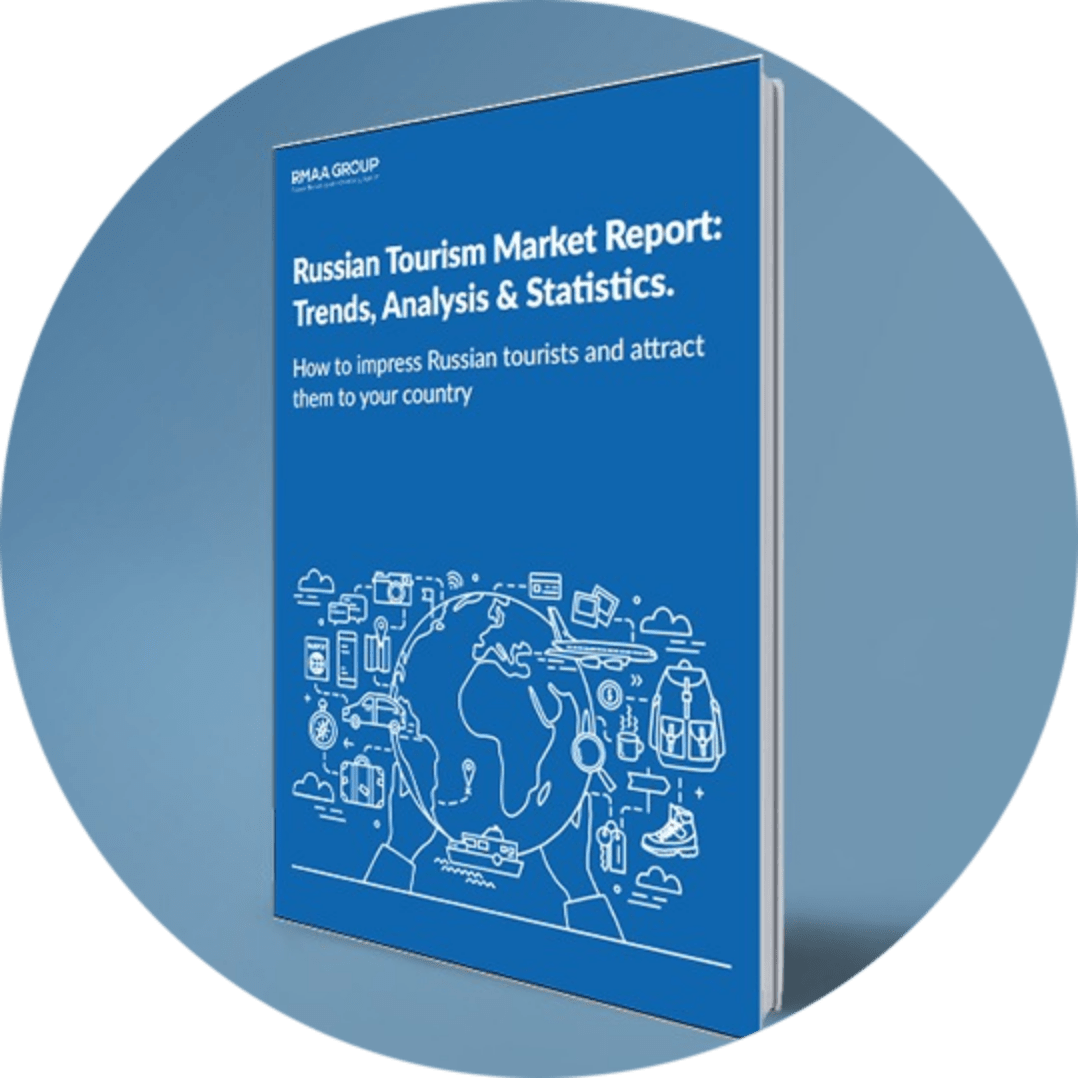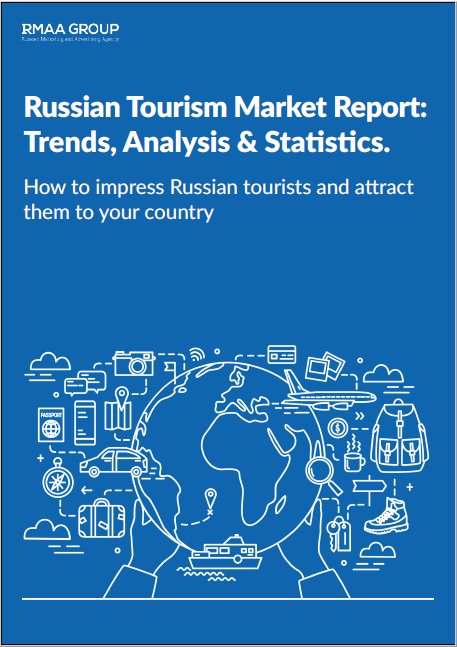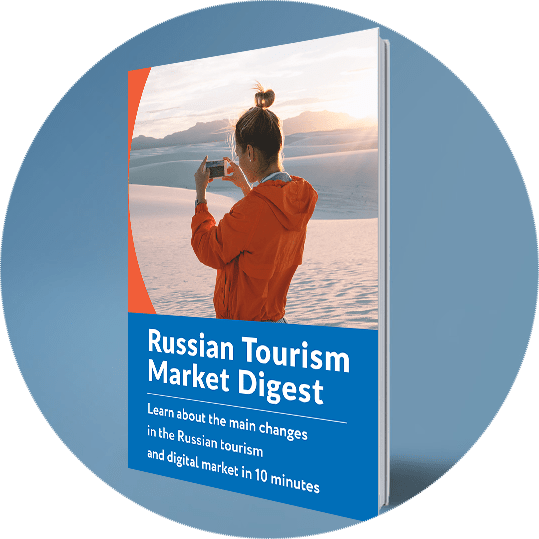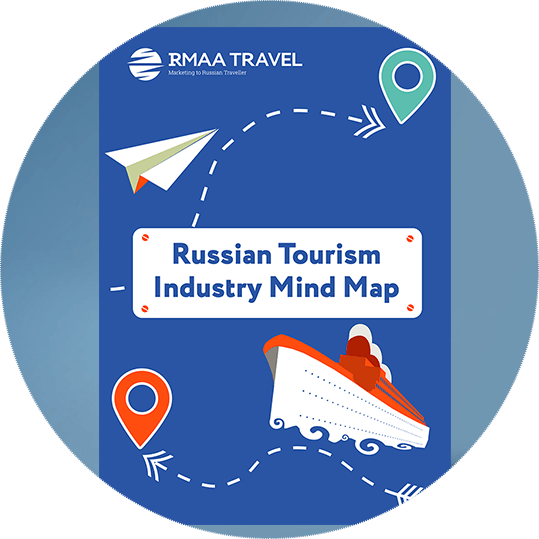Blog about successful marketing strategies in russia
Russian business travel market: data and trends


B2B MARKETING
Share this Post
In 2018, experts from Aeroclub business tourism agency noted a growth of business trips, which, in particular, affected the increase in demand for air tickets in the corporate segment, being 22% as compared to last year. By the way, this indicator leaps ahead the expected CAGR of 4.1% in the global business travel market by 2023.
Russian Business Travel Market Mended Its Fences in 2018
In 2018, the share of foreign destinations was 38% out of the total number of air flights of secondees, having demonstrated a slight growth (+6%), as compared to the previous year. Regardless of a complicated political situation in France, Paris remains the most popular international destination. The number of flights for business purposes to this city increased ones of 2017 by 40%. Besides, experts note a growth of interest on the part of corporations to Yerevan (+53%), Minsk (+49%), Istanbul (+46%), and Munich (+38%), which rounds out Top-5 of the most popular foreign cities.
Almost half (44%) of air flights of business travelers to foreign destinations was done by Aeroflot. The second most popular place is taken by S7, while Turkish Airlines rounds out Top-3 of the leaders. The share of abroad flights in business class stuck to the level of 2017 and comprised 9%.
The Aeroflot research notes a drop of demand for visa processing for employees on the part of the companies: at year-end, it made up almost 30%. Experts associate this significant drop with difficulties in procurement of American visas in the territory of Russia, as well as a growing cooperation of European visa centers and, consequently, a longer expiry period for Schengen visas. Among the most popular countries where Russian business travelers claim visas, there are Great Britain (+17%), Germany (+10%), and China (+9%).
What Hotels Are Preferred by Russian Business Travelers?
In 2018, according to Aeroclub analysts, the number of booked nights grew by 12%, as compared to last year.
Most frequent guests in foreign hotels were representative of manufacturing, energy, and extractive industries—34% of all bookings are accounted for by them. What is more, representatives of these sectors give their preferences to 5* hotels. The second place, as per need in accommodation abroad, was taken by IT specialists—11% nights were accounted for by these companies. Besides, representatives of FMCG companies (10%) actively travel and stay in hotels abroad.
The research showed than more than half of business travelers stay in 4* hotels. As for 3* hotels, 26% of all bookings abroad are taken by them, while 18% of Russian business representatives stay in 5* hotels.
Here is Top-5 of the destinations where Russian businessmen stayed most often:
- Almaty (Best Western Plus Atakent Park Hotel (4*) and Holiday Inn Almaty (4*))
- Minsk (Hampton by Hilton Minsk City Centre (3*) and Renaissance Minsk Hotel (5*))
- Paris (Mercure Paris la Défense Grande Archel (4*) and Mercure Paris La Défense (4*))
- Munich (Holiday Inn Munich (4*) and IntercityHotel (4*))
- Milan (Holiday Inn Milan Garibaldi Station (4*) and Michelangelo (4*))
3 B2B Travel Marketing Trends 2019
Analysts from the Business Tourism Association analyzed the results of the last year and found out important tendencies that will affect business tourism and b2b travel marketing industry in Russia in 2019.
Technologies and Professionals Are On Trend
According to a large body of research in 2018, the digitalization level of business travel processes in Russia is one of the highest in the world. Biometrics, e-wallets, and voiced search reduce booking and buying time up to several clicks on a smartphone screen. However, in the very conditions of global digital reset of business processes, which will happen in 2019, staff competence is becoming most wanted. Now a travel industry expert must be able to quickly accumulate new information, to aggregate all threads of the Web and, what matters most, to understand customers’ needs, appealing to quality and new ideas.
Business + Leisure
Modern Russian business travelers who spend a prominent part of their lives on business trips do not already want to follow a trivial route ‘airport-hotel-meeting-airport’. More and more often, their spouses, children, and even pets go along on their business trips, too. Moreover, an opportunity to have a full-value rest with profit to the mind and body is becoming a real motivation for a business trip. That is why a concept of bleisure (business + leisure) has already found its fans and will become one of the major business travel trends in 2019.
Conference centers with SPA areas, sports centers, and restaurants are being opened out of town. Branded hotels offer babysitters, children’s playrooms, and excursion tours to their guests. Route sheets of secondees start including an event component in form of visiting tourist attractions, authentic restaurants, entertainment centers, and beaches. While just a couple of years ago the number of business travelers from Russia who would add one or two days to their trip for leisure was not more than 7-10%, now nearly one third of them prearranges bleisure trips.
Visa Difficulties
A new round of political stand-off will also badly impact business travelers who obtain American visas. Not only does a multiple visa to the USA (B-1/B-2), including one for business travelers, now costs almost twice as much, but it has also become more difficult to get it. Some Russians who have already faced this problem say that for unknown reasons they have to be interviewed twice, with a few months apart. Someone hopes for thawing of relations and going back to old prices and rules. One thing is clear: in 2019, the USA visa processing will not become simpler, at least unless politicians mind-meld.
If you have any questions about marketing to business travellers in the Russian market, RMAA Travel experts are always glad to answer your questions.
Download the research “The Russian Tourism Market Report: Trends, Analysis & Statistics” for free and learn more about Russian corporate travel market.
Join 2,000+
of your Peers!
You will be the first to know about Russian marketing insights, news and updates from our agency. Stay tuned!
Get our latest articles delivered to your email inbox and get our exclusive White Paper
"How to sell to Russian large companies?"
for FREE!
Travel Research
The Russian Tourism Market Report: Trends, Analysis & Statistics | 2019. How to impress Russian tourists and attract them to your country

Ready to partner with the specialists in Russian travel marketing and advertising?
About the Author
Head of Digital, editor-in-chief of the RMAA Agency Blog
Join 2,000+ of your Peers!
Get our latest articles delivered to your email inbox and get our exclusive White Paper "How to sell to Russian large companies?" for FREE!
You will be the first to know about Russian marketing insights,
news and updates from our agency.
Stay tuned!
We're updating our website's design step by step, so some pages may look different. Thank you for your understanding.
Got it

















